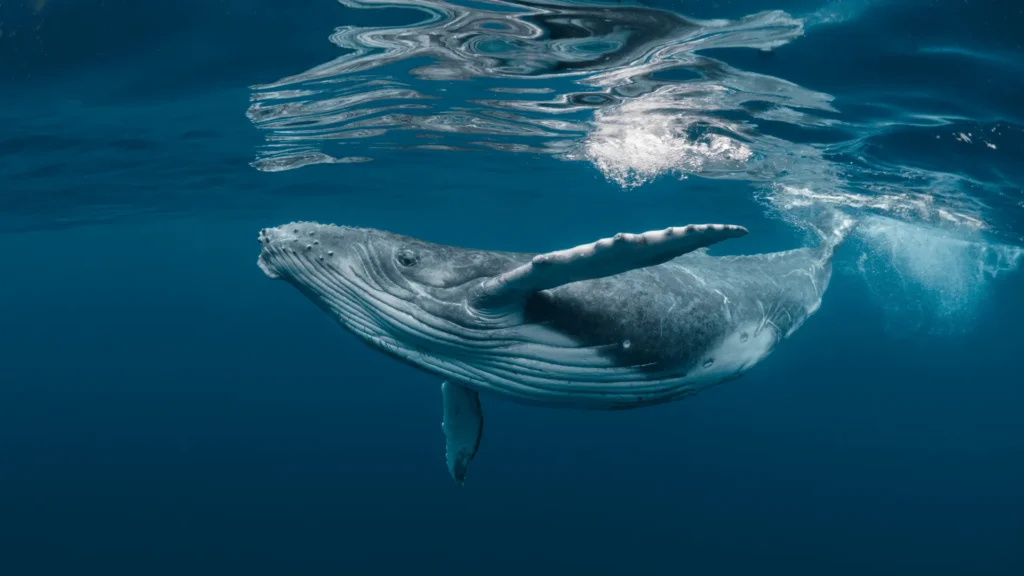The Federal Senate is currently considering worrying legislation that could, if passed, allow critical safeguards around the environmental regulation of risky offshore oil and gas projects to be weakened.
Resources Minister Madeleine King has attempted to sneak through a mechanism for making major changes to the environmental assessment standards for offshore oil and gas projects.
It’s buried in proposed laws that are mostly about worker health and safety, the Offshore Petroleum and Greenhouse Gas Storage Legislation Amendment (Safety and Other Measures) Bill 2024.
EJA lawyer Sam Moorhead told a Senate Inquiry into the Bill that it raises serious legal risks and fails to protect against offshore petroleum regulation being undermined in the future.
“Regardless of what the government might say about the intention of this amendment, there is absolutely nothing in the actual text of the Bill that would ensure that the assessment standards for offshore oil and gas projects could not be weakened in the future."
EJA Lawyer SAM MOORHEAD
What does this bill do?
Industrial activities that will have a significant impact on nationally protected species and places usually need to be assessed and approved by the Federal Environment Minister under the Environment Protection and Biodiversity Conservation Act (‘EPBC Act’) before they can go ahead.
However, most offshore oil and gas activities in Commonwealth waters (more than three nautical miles from the coast) are exempt from the standard EPBC process.
Instead, these projects are regulated by the National Offshore Petroleum Safety and Environmental Management Authority (NOPSEMA) under a different legal framework, the Offshore Petroleum and Greenhouse Gas Storage Act.
This is because in 2014, the Environment Minister gave a blanket approval for offshore oil and gas activities which would otherwise need EPBC assessment, if the projects are assessed and approved by NOPSEMA in line with a special Program Report about NOPSEMA’s processes that the Minister endorsed at the time.
Section 790E of this Bill is attempting to ensure that even if NOPSEMA’s processes change so that they are no longer consistent with what was described in the Program Report endorsed by the Minister, the blanket approval from 2014 would still be valid and offshore petroleum activities would still be exempt from review under our national environmental law.

Why does it matter?
Australia is facing a massive expansion in offshore oil and gas projects that risk our marine wildlife, underwater ecosystems and global climate.
Woodside's controversial $16.5 billion Scarborough gas development off the coast of the Pilbara could release a staggering 1.37 billion tonnes of climate pollution over the next 35 years.
In the ocean between Victoria and Tasmania, TGS also has plans for the biggest 3D seismic blasting project on record globally, creating real risks to southern right whales, pygmy blue whales and Australian sea lions.
Madeline King is trying to change section 790E of the law so that even if NOPSEMA’s approval process changes, the blanket exemption for offshore oil and gas would still apply, and companies still get a tick of approval under the national environmental law.
The problem is that this new Bill doesn’t carry across any of the safeguards or minimum environmental assessment standards set out in the EPBC Act.
Critically, there is absolutely nothing in the text of the Bill to prevent the assessment process for offshore oil and gas projects being weakened in future.
It’s important to understand that this Bill by itself doesn’t open the door to mass gas industry expansion.
But, it does set the scene for that to occur in the future by making it much easier for the government to weaken the environmental protections applicable to offshore oil and gas projects.
What does EJA think needs to change?
Section 790E should be removed from the Bill.
If NOPSEMA’s process changes so that it is no longer consistent with what the Environment Minister endorsed, then the new system should be assessed through the proper process in the EPBC Act to make sure it is still delivering an acceptable standard of protection for our nationally protected species and places.
"The bill could create legal inconsistencies between the Offshore Petroleum and Greenhouse Gas Storage Act and the Environment Protection Biodiversity and Conservation Act, leading to complex legal uncertainty, which is clearly not desirable for anyone.”
EJA Lawyer SAM MOORHEAD

